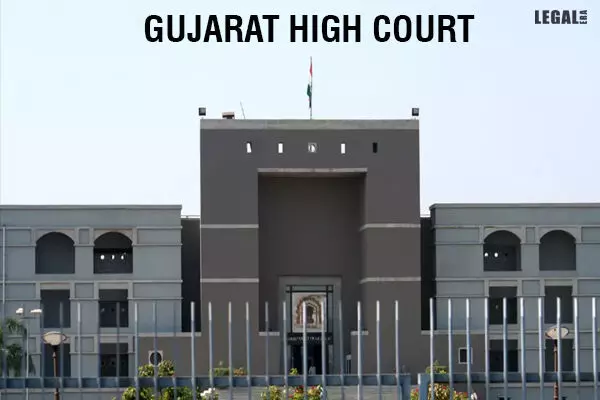- Home
- News
- Articles+
- Aerospace
- Artificial Intelligence
- Agriculture
- Alternate Dispute Resolution
- Arbitration & Mediation
- Banking and Finance
- Bankruptcy
- Book Review
- Bribery & Corruption
- Commercial Litigation
- Competition Law
- Conference Reports
- Consumer Products
- Contract
- Corporate Governance
- Corporate Law
- Covid-19
- Cryptocurrency
- Cybersecurity
- Data Protection
- Defence
- Digital Economy
- E-commerce
- Employment Law
- Energy and Natural Resources
- Entertainment and Sports Law
- Environmental Law
- Environmental, Social, and Governance
- Foreign Direct Investment
- Food and Beverage
- Gaming
- Health Care
- IBC Diaries
- In Focus
- Inclusion & Diversity
- Insurance Law
- Intellectual Property
- International Law
- IP & Tech Era
- Know the Law
- Labour Laws
- Law & Policy and Regulation
- Litigation
- Litigation Funding
- Manufacturing
- Mergers & Acquisitions
- NFTs
- Privacy
- Private Equity
- Project Finance
- Real Estate
- Risk and Compliance
- Student Corner
- Take On Board
- Tax
- Technology Media and Telecom
- Tributes
- Viewpoint
- Zoom In
- Law Firms
- In-House
- Rankings
- E-Magazine
- Legal Era TV
- Events
- Middle East
- Africa
- News
- Articles
- Aerospace
- Artificial Intelligence
- Agriculture
- Alternate Dispute Resolution
- Arbitration & Mediation
- Banking and Finance
- Bankruptcy
- Book Review
- Bribery & Corruption
- Commercial Litigation
- Competition Law
- Conference Reports
- Consumer Products
- Contract
- Corporate Governance
- Corporate Law
- Covid-19
- Cryptocurrency
- Cybersecurity
- Data Protection
- Defence
- Digital Economy
- E-commerce
- Employment Law
- Energy and Natural Resources
- Entertainment and Sports Law
- Environmental Law
- Environmental, Social, and Governance
- Foreign Direct Investment
- Food and Beverage
- Gaming
- Health Care
- IBC Diaries
- In Focus
- Inclusion & Diversity
- Insurance Law
- Intellectual Property
- International Law
- IP & Tech Era
- Know the Law
- Labour Laws
- Law & Policy and Regulation
- Litigation
- Litigation Funding
- Manufacturing
- Mergers & Acquisitions
- NFTs
- Privacy
- Private Equity
- Project Finance
- Real Estate
- Risk and Compliance
- Student Corner
- Take On Board
- Tax
- Technology Media and Telecom
- Tributes
- Viewpoint
- Zoom In
- Law Firms
- In-House
- Rankings
- E-Magazine
- Legal Era TV
- Events
- Middle East
- Africa
Gujarat High Court rules in favor of Star Rays; allows benefit under India-USA DTAA

Gujarat High Court rules in favor of Star Rays; allows benefit under India-USA DTAA
Holds that mere rendering of services could not be termed as ‘Fees for Technical Services’
The Gujarat High Court has ruled in favor of the assessee stating that it was entitled to claim treaty benefits under the Double Taxation Avoidance Agreement (DTAA) between India and the United States.
The assessee, Star Rays, a partnership firm, was involved in the diamond industry encompassing diamond cutting, polishing, and export activities. In specific cases, diamonds were submitted for certification by the Gemological Institute of America (GIA) based on the buyers' requirements.
The certification procedure was carried out by GIA Inc USA under a customer services agreement with the assessee. GIA had established a laboratory in Hong Kong through a separate entity named GIA Hong Kong Laboratory Ltd.
A mistake occurred when the assessee filed out Form 15CA/15CB. It indicated that the remittance advice from the Bank of India was issued in favor of GIA Hong Kong, though it had no direct agreement or relationship with GIA Hong Kong.
Consequently, the assessing officer (AO) concluded that the payment was made to GIA Hong Kong rather than GIA USA. Thus, he disqualified the assessee from claiming treaty benefits under the India-USA and India-China agreements.
The AO asserted that the assessee should have deducted TDS before making payment to GIA Hong Kong. This led to a determination that the assessee was in default and liable to pay Rs.4.43 crores under Sections 201(1) and 201(1A) of the Income Tax Act.
The division bench of Justice Biren Vaishnav and Justice Devan M. Desai observed that as established through findings by the lower authorities, there was a specific process involving the delivery of articles through a ‘take in window’, even though the service agreement remained between the assessee and GIA USA.
The remittances made to the USA entity's account also established that GIA USA was the rightful beneficiary of those funds.
The judges noted that the grading reports provided by GIA USA could not be considered as ‘made available’ to the assessee in a manner that would allow it to utilize the technical knowledge independently in its business. The knowledge, skills, and expertise provided by GIA USA were not retained by the assessee after the service was completed. Therefore, in the future, it would require continued reliance on GIA USA.
The bench stated that a factual analysis, particularly considering the terms of the customer service agreement, the bank invoice, and the bank remittance advice, led to the conclusion by the authorities that the assessee's situation was covered by the India-USA DTAA.
The court emphasized that for a service to qualify as ‘Fees for Technical Services’ (FTS), it was essential that the recipient could effectively utilize the technical knowledge. The rendering of services wasn't enough to classify as FTS.
Thus, the bench held that the plea lacked substantial questions of law and dismissed the appeal.



